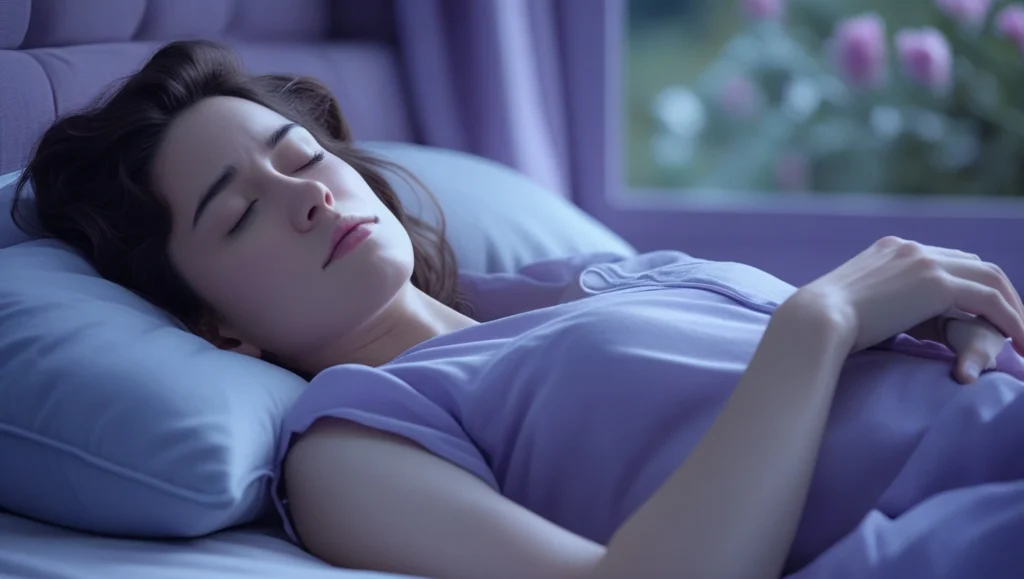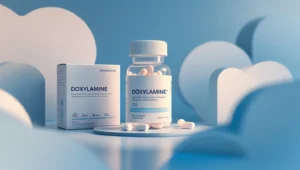What Is Hypersomnia?
Hypersomnia is a sleep disorder characterized by excessive daytime sleepiness (EDS), prolonged nighttime sleep (often 10+ hours), and difficulty waking up. Unlike fatigue, people with hypersomnia feel an irresistible need to sleep even after adequate rest, which interferes with daily life.
Types of Hypersomnia
- Primary Hypersomnia (Idiopathic) – No clear underlying cause (neurological origin).
- Secondary Hypersomnia – Caused by medical conditions, medications, or sleep disorders.
Symptoms of Hypersomnia
- Excessive daytime sleepiness (falling asleep at work, while driving, or mid-conversation).
- Sleeping 10+ hours but still feeling unrefreshed.
- Difficulty waking up (sleep inertia, grogginess lasting hours).
- Brain fog, memory issues, and poor concentration.
- Low energy, irritability, and mood swings.
Severe Cases: Some people experience automatic behaviors (performing tasks without memory of doing them).

Causes of Hypersomnia
1. Neurological & Genetic Factors
- Narcolepsy Type 1 or 2 (loss of hypocretin/orexin neurons).
- Kleine-Levin Syndrome (rare disorder with recurrent hypersomnia episodes).
- Genetic predisposition (family history of sleep disorders).
2. Sleep Disorders
- Sleep apnea (interrupted breathing disrupts sleep quality).
- Restless legs syndrome (RLS) or periodic limb movement disorder (PLMD).
- Circadian rhythm disorders (delayed sleep phase syndrome).
3. Medical Conditions
- Depression, bipolar disorder, or anxiety.
- Hypothyroidism, diabetes, or multiple sclerosis (MS).
- Brain injuries, tumors, or encephalitis.
4. Medications & Substances
- Sedatives (benzodiazepines, antihistamines).
- Alcohol or drug withdrawal.
- Stimulant crash (after ADHD meds wear off).

Diagnosis of Hypersomnia
A sleep specialist may conduct:
✔ Epworth Sleepiness Scale (ESS) – Measures daytime sleepiness.
✔ Polysomnography (Sleep Study) – Monitors brain waves, oxygen levels, and limb movements.
✔ Multiple Sleep Latency Test (MSLT) – Checks how quickly you fall asleep in daytime naps.
✔ Blood Tests – Rules out hypothyroidism, anemia, or infections.
Treatment Options for Hypersomnia
1. Medications
- Stimulants (Modafinil, Armodafinil) – Promotes wakefulness.
- Methylphenidate (Ritalin), Amphetamines (Adderall) – For severe cases.
- Sodium Oxybate (Xyrem) – Improves deep sleep in narcolepsy-related hypersomnia.
- Antidepressants (SSRIs, SNRIs) – If linked to depression.
2. Lifestyle & Behavioral Therapies
- Sleep Hygiene Fixes – Consistent sleep schedule, dark/cool bedroom.
- Caffeine Management – Limited to early day to avoid crashes.
- Scheduled Naps – Short 15-20 min power naps (not too late in the day).
- Light Therapy – Morning bright light exposure to regulate circadian rhythm.
3. Treating Underlying Causes
- CPAP/BiPAP – If sleep apnea is the culprit.
- Thyroid medication – For hypothyroidism.
- Cognitive Behavioral Therapy (CBT) – For mood-related hypersomnia.
When to See a Doctor
Seek help if:
✔ You fall asleep uncontrollably in dangerous situations (driving, working).
✔ Sleepiness persists despite 7-9 hours of sleep.
✔ You experience memory loss, hallucinations, or sleep paralysis.
Final Thoughts
Hypersomnia is more than just “being tired”—it’s a debilitating sleep disorder needing proper diagnosis and treatment. While stimulants help short-term, fixing the root cause (sleep apnea, depression, etc.) is key for long-term relief.







